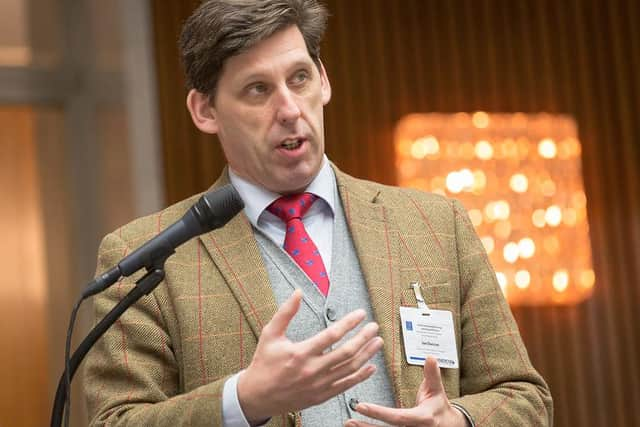Ian Duncan: 'It’s a challenging time for trans folk; they’re up against such stirred-up animosity' - Scottish Lord campaigns for better trans healthcare after brother's ovarian cancer death
Speaking to i News, Ian Duncan gave an emotional interview about his brother Sean who died aged 48 after being diagnosed with ovarian cancer.
Lord Duncan is a Scottish politician, a member of the Conservative party and current Deputy Speaker in the House of Lords.
Advertisement
Hide AdAdvertisement
Hide AdIn the interview, he described his brother as emotive, caring and supportive.


Sean transitioned in the late 90s, taking testosterone and undergoing top surgery, though had not had any internal surgery, which many trans people undergo, before he decided to move to America.
He fell in love with a women, an American nurse, and together they set up home in Virginia.
“He was very nearly getting the whole package together and then it was blown apart by a legacy of his former self,” said Lord Duncan.
The former Scottish MEP was living in Brussels when Sean called him to tell him he had been diagnosed with ovarian cancer.
“I remember thinking, ‘That must be very difficult to deal with because of who you are’," Lord Duncan added.
Although access to health care in the United States was part of the problem for Sean, his brother thinks there was more to it.
“If you are content with who you are, having begun to transition, it’s very hard to think about the bits inside.
Advertisement
Hide AdAdvertisement
Hide Ad"You would not have been thinking that that was something that needed to be checked.
"The idea of what’s under the skin probably wasn’t a thing that had registered [with Sean].”
Sean died aged 48 of ovarian cancer.
Lord Duncan continued: "It’s difficult. Grief is indeed the price you pay for love.”
He spoke to i News to raise awareness of the dangers of cancer, particularly in trans people who face healthcare challenges.
“Our healthcare system has a long way to go to help” he said, adding that a new language was needed.
“It’s a challenging time for trans folk; they’re up against such stirred-up animosity,”
“The whole community has become a football for different political, moral factions who are using it as a means to tell a story.
“And often the people who are ignored are the very people that that story is about.
Advertisement
Hide AdAdvertisement
Hide Ad"My fear is that some of this might give ammunition to critics of the community. I’m aware how it could be misused.”
He concluded that he hoped people would read the interview and be encouraged to go for a check up, or persuade a loved one to.
The full interview can be read here.
Eloise Stonborough, associate director of policy and research at Stonewall, said: “It was incredibly brave of Lord Ian Duncan to speak out about losing his brother to ovarian cancer. Everyone deserves access to timely and high-quality healthcare, but we know that, in 2021, trans people are still not receiving the healthcare they need.
"As well as serious under-resourcing in specialist services for trans people - with waiting times often in excess of 2 years - trans people also face challenges in accessing wider healthcare services. Important preventative measures, such as cervical screenings, mammograms and ultrasounds must be inclusive and accessible to everyone who is at risk of the illnesses they screen for, and this must include trans and non-binary people.
“It is vital that the Government, the National Health Service and the National LGBT Health Advisor continue to work to address the health inequities that trans people and the wider LGBTQ+ community face, and ensure that all LGBTQ+ people can access the healthcare they need, when they need it.”
LGBT Helpline Scotland: 0300 123 2523
Stonewall: 0300 330 0630
A message from the Editor:
Thank you for reading this article. We're more reliant on your support than ever as the shift in consumer habits brought about by Coronavirus impacts our advertisers.
If you haven't already, please consider supporting our trusted, fact-checked journalism by taking out a digital subscription.
Comments
Want to join the conversation? Please or to comment on this article.
